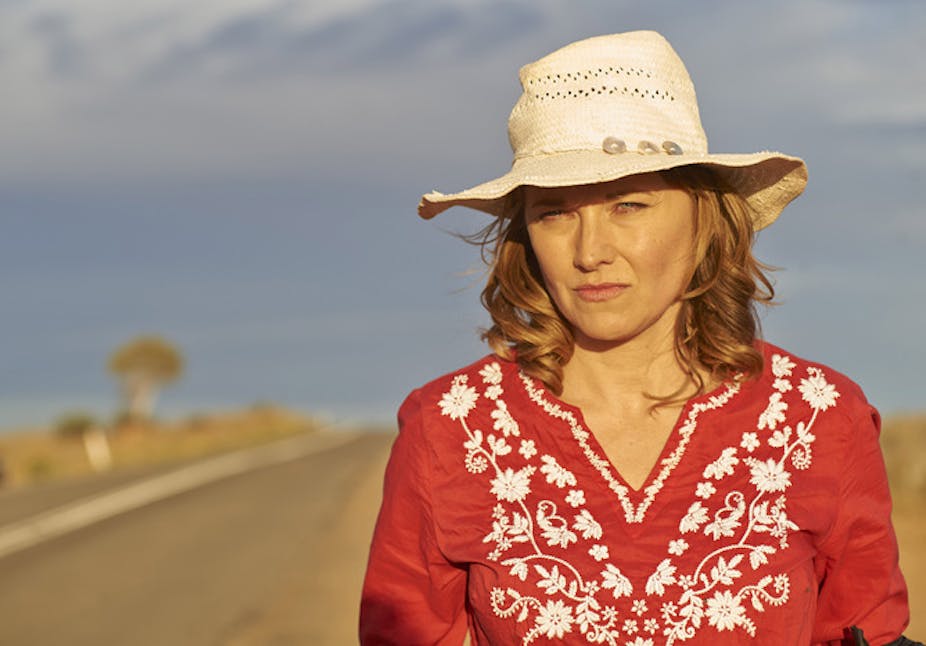ABC’s six-part political thriller The Code is shaping up as the most challenging political thriller on Australian television since the BBC’s House of Cards (1990). And, like the BBC series – and its recent US remake for Netflix – The Code is about political power and its abuse, and the amorality and pragmatism that permits, indeed authorises, that abuse.
The interests, concerns and anxieties of a society shape popular culture in many ways. This time of the year, football and football related activities infuse the media and our conversations.

In the 1950s and 1960s we had the Cold War, a time of military stand-off between the West and the Soviet Union and its eastern ally China. The fear of a hot war, especially the fear of nuclear conflict, coloured society’s attitudes.
The spate of sightings of flying saucers and the popularity of books on alien life and human encounters with these visitors has been laid at the feet of anxiety about a war between East and West. Arguably, too, the popularity in the 50s of sci-fi horror films has similar roots.
One of the first uses I ever found for geometry reflected that anxiety, too. I set out to calculate the altitude at which a nuclear weapon would have to be, airburst over Ashfield, a Sydney suburb then near the city’s demographic centre, to expose our northern suburban home to the direct radiation of the blast. Looking back, it was a grim task for a ten-year-old.
At the same time, the Sydney Morning Herald was serialising a popular novel about survival, post-nuclear holocaust. I recall, in the book, petrol was rationed in pints. I especially recall the episode in which the petrol was all gone and the generator fell silent.
House of Cards, coming hard on the heels of the resignation of UK Prime Minister Margaret Thatcher, may owe some of its popularity to the bleakness of the Thatcher years in Great Britain. Certainly, the new dark British cinema of the post-Thatcher period – the work of directors such as Mike Leigh and Danny Boyle – stood out. Their films certainly found a receptive cinema audience.
In Australia, the home-grown cinema of the 1990s was dark, too. But it failed to engage audiences and the box-office share for Australian titles fell dramatically. Here, today, (and elsewhere in the West) the present and profound loss of faith in politicians and our questioning of their motives and actions again sets the climate for a darker cinema and television to emerge.
There are two genres responding darkly in television: comedy and drama.
Shaun Micallef’s Mad as Hell and Utopia reflect one response – satirical derision. And The Chaser returns to ABC television next month. In terms of screen drama, The Code is an early and powerful manifestation of a response. We can expect more programs like these, including on commercial TV. The stations will follow once the reality-program star fades or turns nastier yet with demands more on-screen self-abasement by its participants.

The Code – now two episodes in – unveils a landscape populated by political operatives who “will do whatever it takes” to achieve their intended ends. But these characters are not the crims from the Underbelly franchise, or like those bound by distorted fraternal loyalty in Bikie Wars: Brothers in Arms – characters set at a comfortable distance from most domestic experience, who we can comfortably live with as long as they stay on the screen.
The Code’s characters are salaried public servants or politicians. They have superannuation and mortgages, kids in good schools and lawns to be mown at weekends. Few look as creepy as The Code’s federal police officer, Lyndon Joyce (Dan Wyllie) but all are capable of evil. The chill you feel comes from the realisation they might have been sitting behind you at the footy.
Herein lies much of the power of The Code: it suggests, as have other shows in recent times, the trust we confer on politicians and public servants is capable of betrayal; and the near certain knowledge that the hapless heroes, brothers Ned and Jesse Banks (Dan Spielman and Ashley Zukerman) are virtually powerless to change the course of events.
These are strong emotions, still largely alien to the Australia political experience. But they are in the experience of many in the community who know less benign political economies.
The menace emerging from The Code is that this is our political future. The ratcheting up of threat alerts throughout the West (and the new Australian security legislation) does nothing to deflect such fears. In fact, it creates an ecology of evil for the success of The Code, and similar TV shows programs, both here and overseas.
The Code is showing on ABC, Sunday nights.

